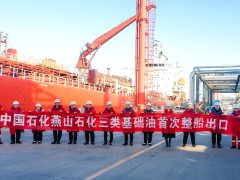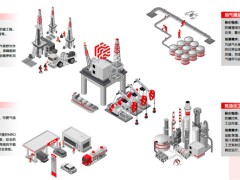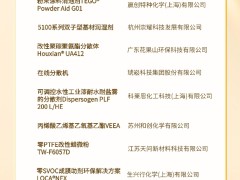据彭博社7月13日报道,国际货币基金组织(IMF)称,沙特阿拉伯可能会利用石油收入盈余重建储备,打破其在原油价格上涨时刺激支出的历史做法。
IMF驻沙特代表团团长蒂姆•卡伦(timcallen)表示:“无论油价走向何方,预算中规定的支出路径都将得到坚持,我认为这是正确的做法。坚持有针对性的支出可以帮助真正建立起近年来一直在减少的金融资产。”
据IMF估计,每桶75美元左右的原油价格仅略低于沙特阿拉伯平衡预算所需的价格。随着全球经济从疫情的影响中复苏,油价可能进一步上涨。国际能源署(IEA)警告称,除非沙特阿拉伯及其欧佩克+盟国提高产量,否则石油市场将继续吃紧。
卡伦表示:"过去,沙特预算过程的弱点在于,随着油价上涨,支出将增加,而当油价回升时,你就不得不做出艰难的决定。我们不认为顺应周期性对经济有帮助,因此,即使油价更高,坚持原来的支出计划是完全正确的。”
沙特阿拉伯今年的支出为9900亿里亚尔(2640亿美元),而收入预计将上升至8490亿里亚尔。由于这一赤字,以及向沙特主权财富基金的转移,5月份该国的净外国资产降至约10年来的最低水平。
由于油价下跌和新冠肺炎疫情的双重冲击,阿拉伯世界最大的经济体在2020年大幅收缩。政府采取措施缓解财政影响,包括将增值税提高两倍、削减支出计划和提高进口费用等。
尽管沙特王储穆罕默德·本·萨勒曼(Mohammed bin Salman)表示,上调增值税是为了应对新冠肺炎危机,未来几年可能会降低税率,但IMF不建议这么做。卡伦称:“现在已经提高了增值税税率,重要的是保持目前的税率不变,并不希望以顺周期甚至反周期的方式来使用税率。”
IMF还建议,政府可以为低收入家庭提供更有针对性的金融支持。一直在削减燃料补贴的沙特上周为国内汽油价格设定了上限,并表示将承担高于该水平的价格负担。
卡伦表示,政府应该利用一个名为“公民账户”(Citizens Account)的项目,为低收入家庭提供直接的财政支持,而不是强制设定油价上限。他补充道:“坚持一直在做的改革,不要逆转它们。MF也在为沙特政府管理主权资产负债提供技术援助。”
王佳晶 摘译自 彭博社
原文如下:
Higher Oil Income Will Boost Saudi Saving Not Spending, IMF Says
Saudi Arabia is likely to use surplus oil revenue to rebuild reserves, breaking with its historical practice of boosting spending when crude prices rise, according to the International Monetary Fund.
“The message that we very strongly got was that the expenditure path set out in the budget will be stuck to, regardless of where oil prices go to, which I think is the right thing to do,” Tim Callen, the IMF mission chief to the kingdom, said in an interview late Monday. Sticking to targeted spending “allows you then to really build the financial assets that have been run down in recent years.”
Crude prices around $75 a barrel are only slightly lower than what Saudi Arabia needs to balance the budget, according to IMF estimates. They may rise further as the global economy rebounds from the impact of the pandemic and the International Energy Agency warned on Tuesday that the oil market would remain tight unless Saudi Arabia and its OPEC+ allies boost production.
“In the past, the weakness of the Saudi budget process was as oil prices go up spending would go up, and when prices turn around you then have to make difficult decisions,” Callen said. “We don’t think that pro-cyclicality is helpful for the economy, so it’s exactly right to stick with the expenditure as it was set out, even if oil prices are higher.”
Saudi Arabia set spending this year at 990 billion riyals ($264 billion), while revenue is projected to rise to 849 billion riyals. As a result of that deficit, and transfers to the kingdom’s sovereign wealth fund, net foreign assets dropped to their lowest level in about 10 years in May.
The Arab world’s largest economy contracted sharply in 2020 due to the double shock of lower oil prices and the coronavirus pandemic. The government took measures to cushion the fiscal impact, tripling the value-added tax, cutting expenditure plans and raising import fees.
While Crown Prince Mohammed bin Salman has suggested the VAT hike was a response to Covid-19 and the rate could be reduced in the next few years, the IMF advises against it. “Having now raised the VAT rate, it is important that it stays where it is,” Callen said. “You don’t want to use tax rates in a pro-cyclical or even a counter-cyclical way.”
The IMF also suggested the government could afford to use more targeted financial support for low-income households. The kingdom, which has been reducing fuel subsidies, set an upper limit for the domestic cost of gasoline last week and said the state would shoulder the burden of prices above that level.
Rather than imposing a cap, Callen said the government should use a program called the Citizens Account to direct financial support to low-income households. “Stick with the reforms that you’ve been doing and don’t reverse them,” he said.
The IMF is also giving technical assistance to the Saudi government in managing its sovereign asset liability, Callen said.
免责声明:本网转载自其它媒体的文章,目的在于弘扬石化精神,传递更多石化信息,并不代表本网赞同其观点和对其真实性负责,在此我们谨向原作者和原媒体致以敬意。如果您认为本站文章侵犯了您的版权,请与我们联系,我们将第一时间删除。







